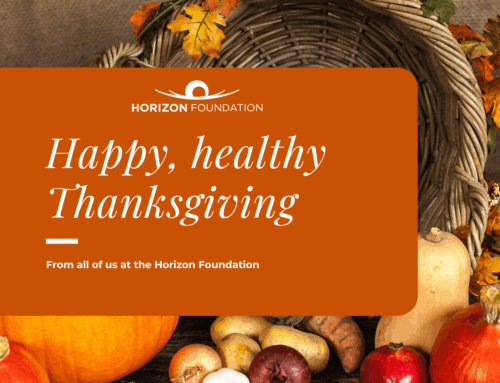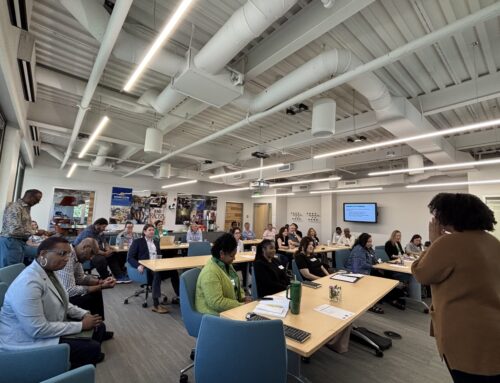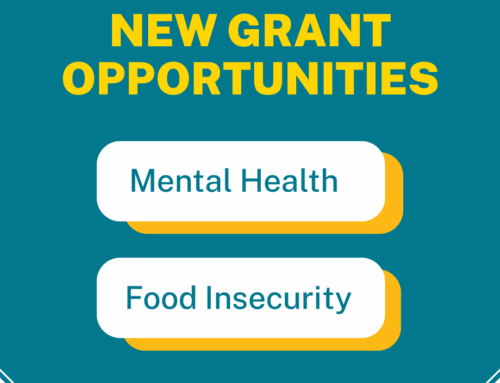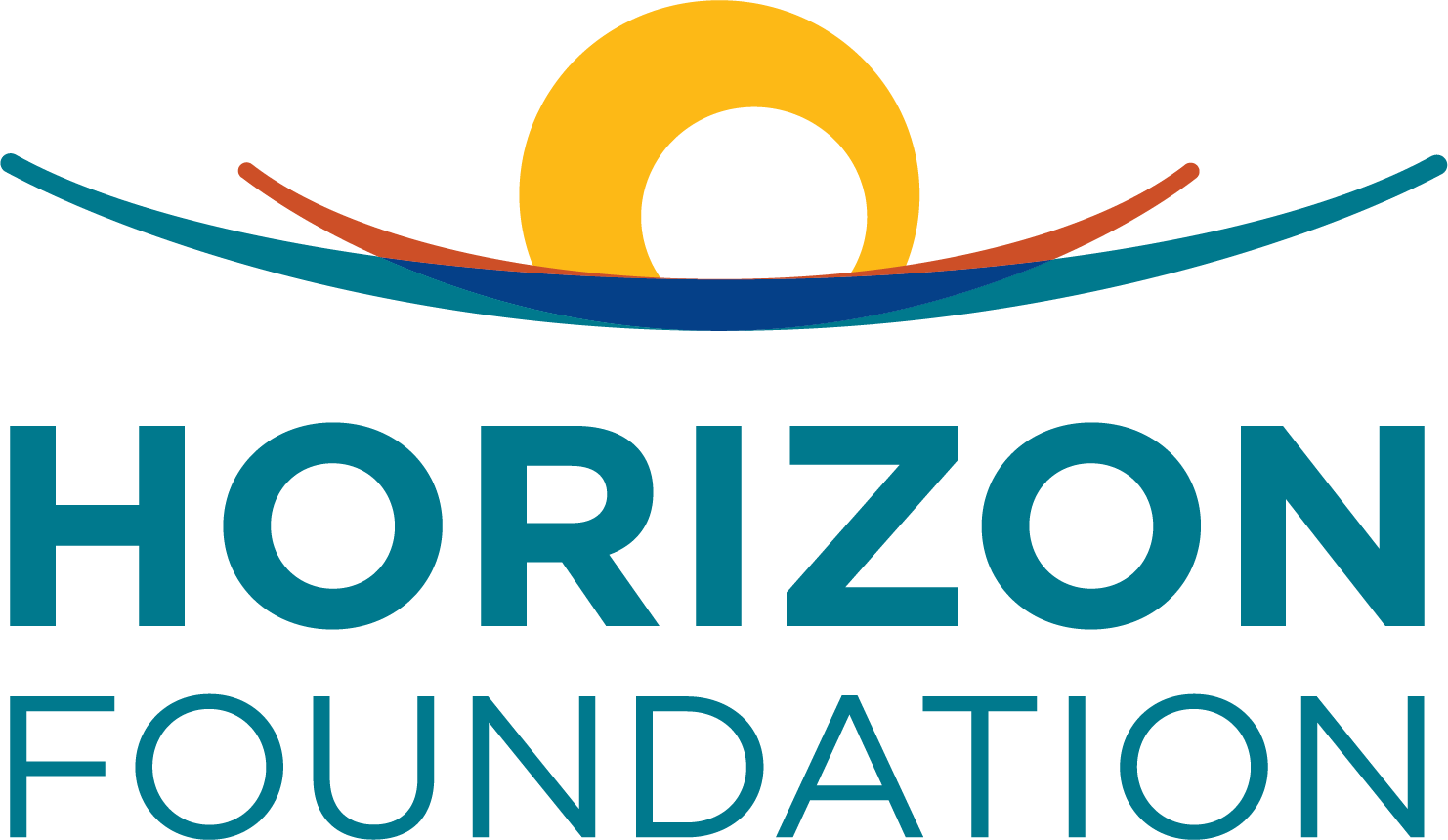As the Foundation has embarked on our new strategic plan over the last two years, many things have changed for us. For the first time in 25 years, the Horizon Foundation changed its vision, mission and values to better represent a bold new direction. We committed to leading with anti-racism as our north star, and to authentically partner with community at every level to deliver trust-centered philanthropy to achieve better health for all. This involved changing our grantmaking practices to invest more in relationship building, offer opportunities for longer-term, unrestricted operating grants and seek to upend longstanding power dynamics between funders and grantees. We have committed to co-creating solutions to big challenges with our community and putting people of color at the center of all of our work.
A critical piece of all of this work holding ourselves accountable – ensuring that we are living up to the values we hold, that we are “walking the walk” and that when we make mistakes, we own up to them. That is why we engaged Dr. LaShay Harvey and her team at Creation Stories Studio to be our learning and accountability partner. Dr. Harvey has spent the last two years with us observing our processes, engaging with staff and grantees and walking with us as we implemented our new strategic plan to assess how our actions have aligned with our new mission and vision. Though this work is ongoing, we recently sat down with Dr. Harvey for her to share some of her big picture takeaways about what the Foundation is doing well and some of the challenges we face.
The following interview has been edited for brevity and clarity.
—
Based on what you’ve been observing, what do you think is the Horizon Foundation’s “secret sauce?” What has been successful for us?
LH: Horizon has acted with boldness to address some really ancient, existential issues and crises. Most organizations are looking for the low hanging fruit. Horizon has instead said, “No, we are not doing it that way. We are going to transform foundational elements that make for a healthy community and a healthy society.” The plan is bold because it is facing, head on, some really old, difficult problems. I also think that Horizon’s secret sauce is its commitment to time and commitment to freedom. Most everything I have witnessed in my time with Horizon is work that is not going to get done in six months. The organization has made a much longer commitment and has the internal trust and ability to sustain its resources and constantly adjust. Horizon also has a lot of freedom in the way that it was founded and is governed, but not all community health organizations born in the 1990s maintained their original north star. Horizon has a freedom that allows it to do things that other foundations can’t do, but it does not just give in to things that are trendy. Horizon has said, “We want an inclusive conversation with everyone involved. We want to do what is fair, just and right. We adhere to making sure that everyone in our community is well.”
How do you think the Foundation is living out our mission and values? How aligned are our actions with those ideals?
LH: You all have gotten so good at acknowledging what your lanes are and articulating what it is you are supposed to be doing from a global, aerial view. When it starts to come down into nuance and details, sometimes things are not as elegant as we want them to be in the deliverables. The Foundation aspires to be an anti-racist, trust-centered philanthropy that puts grantees at the center of the work along with the data, and very deliberately does not want to be prescriptive. Still, there are times when the community is still looking to the Foundation to be the leader. It is an ongoing process to figure out when to push versus when not to, when to give more structure but not feel like we are telling people what to do, so sometimes expectations can feel unclear to grantees. Still, the Foundation is always clear in saying, “Here is how we are entering this space, so we don’t fall into the old traps of philanthropy.”
What do you think are some of the biggest challenges the Foundation is up against?
LH: There is no question that most of us who are somewhere between our 30s and early 60s have never seen this type of political climate in our careers. It cannot be understated the level of exhaustion that people are experiencing – personal, interpersonal, professional, social, every manner of way. Exhaustion is the #1 thing I hear from grantees about themselves, and it’s how we all feel too. The challenge is how to understand what we are going to do about it – it has to be something that the Foundation does more than just name, because it impacts how the organization funds, communicates and innovates. The other challenge for the Foundation is finding peace in knowing that even if it doesn’t look like we are making progress, we are. The Foundation is saying it is committed to moving the needle on these really tough issues, but how do we set a metric that pleases the community, staff and the board because everyone has a different way of understanding success? Success can be a movement, and it can’t be held to the same metrics as 10 years ago. No system was built in two years, so everything will take more time.
Anything else you’d like to add?
LH: Horizon knows it has expertise, and it would be a good idea if the organization engaged in collating or archiving what it is good at and offering that to grantees when they need it. People don’t always know how to articulate what they need, and sometimes it can even be a burden to articulate it. The Foundation could put some things together in advance, not in an arrogant or aggressive way, but just in a way so grantees can benefit from the internal expertise you have.
It’s also really important for the Foundation to give intentional thought to its process, not just content. Innovation is necessary for a foundation like Horizon because it is right sized for the community it is a part of. Horizon can hold the reins of process, intention and innovation while also figuring out how it can get in front of what’s coming and not just be philosophically on the right side of history. You continue to inspire yourselves, in addition to your grantees and the community.





